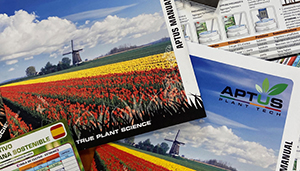Some big testing results!
It is harvesting season! Aptus Plant Tech collaborates with schools and owners of all kinds of urban gardens to create awareness on locally grown food. To prove our methods and products, all crops get analysed in official laboratories on nutritional value. We like to say: to eat healthy…the plants you eat must be healthy. In these testing gardens we only use three products: All-in-One pellets, Aptus Regulator and Aptus Startbooster. A big thanks for Danielle’s fine work at her urban garden Oermoes in Nieuwstadt, the Netherlands.
CARROTS
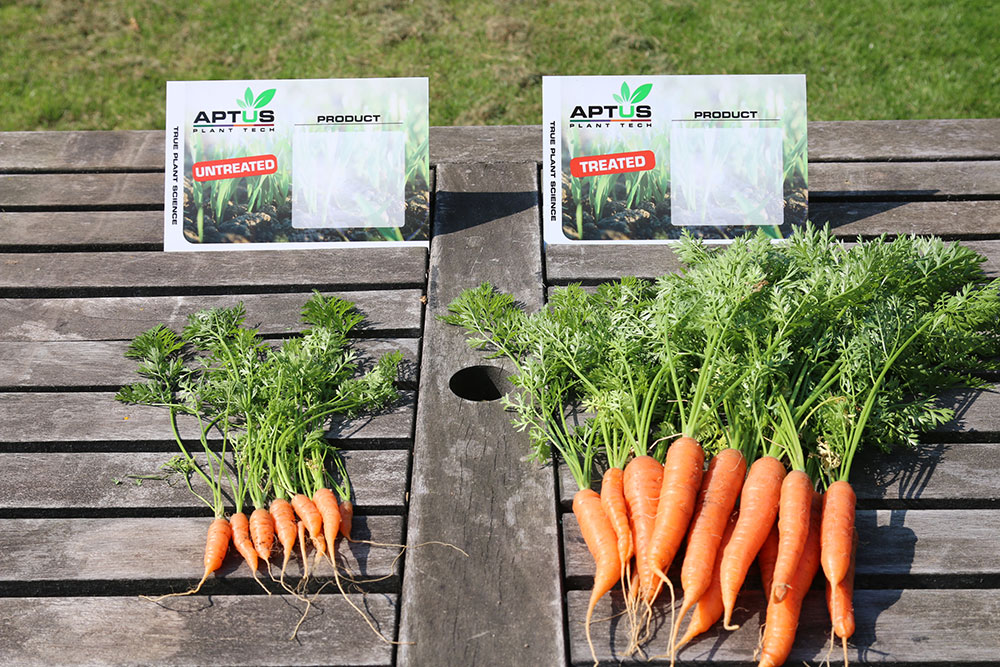
Looking at such big differences in sizing, you would almost expect the ‘treated’ carrots to be lower in nutritional density. That is not the case. So not only bigger quantity, but better quality as well.
Looking at the treated section, lab results show an increase of:
13% in potassium
39% in calcium
17% in magnesium
28% in sulfur
95% in manganese
High calcium values indicate amongst others a better quality and longer shelf-life. Manganese is important for the metabolism and the process of photosynthesis.
Total yield of the treated section is 354 grams. The untreated section had a total yield of 25 grams. That’s an increase in yield of over 1400%. On average the diameter of the APTUS treated carrots is twice (202%) as thick and the carrots are 2,5 times as long (257%).
BEETROOT
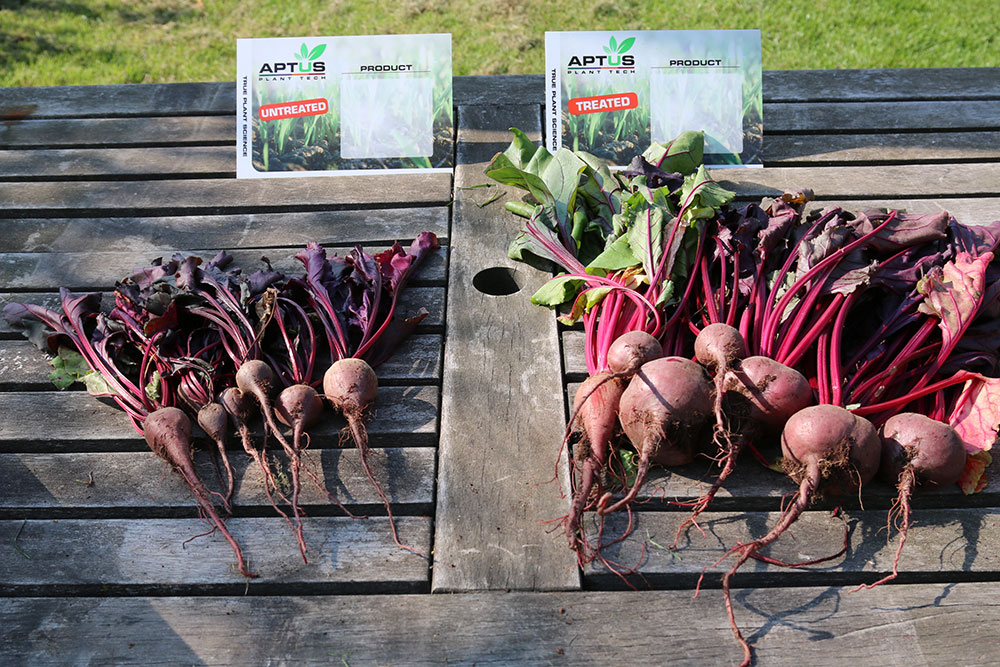
Also hugely different in size, lab results show a reduction of 23% in nitrate in the treated plants. In the human body nitrate can be converted into nitrite, which is dangerous for humans. This lower nitrate value is a very important indicator for our further research.
Also we see:
59% more sulfur
57% more manganese
4% more potassium
6% more calcium
Sulfur plays a vital role in the development of proteins, vitamins and amino acids in plants. It also indicates a better flavor.
Total yield of the treated section is 1085 grams. The untreated section had a total yield of 267 grams. That’s an increase in yield of over 406%. On average the diameter of the APTUS treated beets is almost twice (193%) as thick and the beetroots are 1,5 times longer (152%).
RADISH
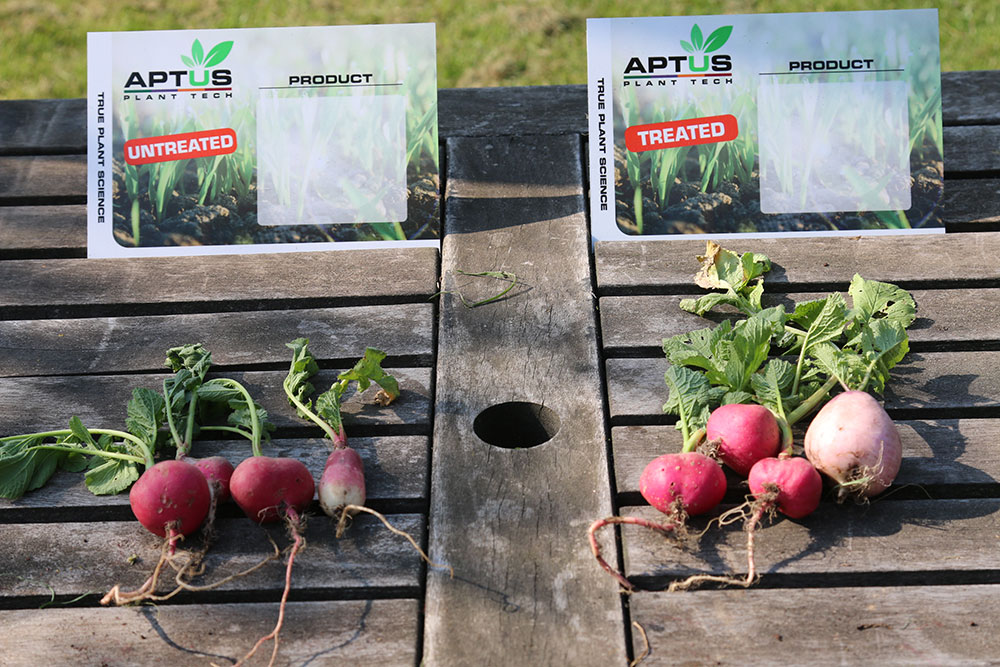
Three out of four radishes are quite the same in size. The radish on the right is obviously a lot bigger than his untreated brother.
The leafs in the treated sections show an increase of 29% potassium, 22% in sulfur and 18% in nitrogen.
Analysis of the fruits of the radishes show:
26% more potassium
38% more sulfur
86% less nitrate
50% more nitrogen
Potassium is important for the quality of vegetables, for water-management and the hardness of fruits. For humans it is necessary for muscle movement and transmission of nerve impulses.
Total yield of the treated section is 81 grams. The untreated section had a total yield of 54 grams. That’s an increase in yield of 150%. With an overall similar length, the diameter of the APTUS treated radishes show an increase of 23% on average.
(SWISS) CHARD
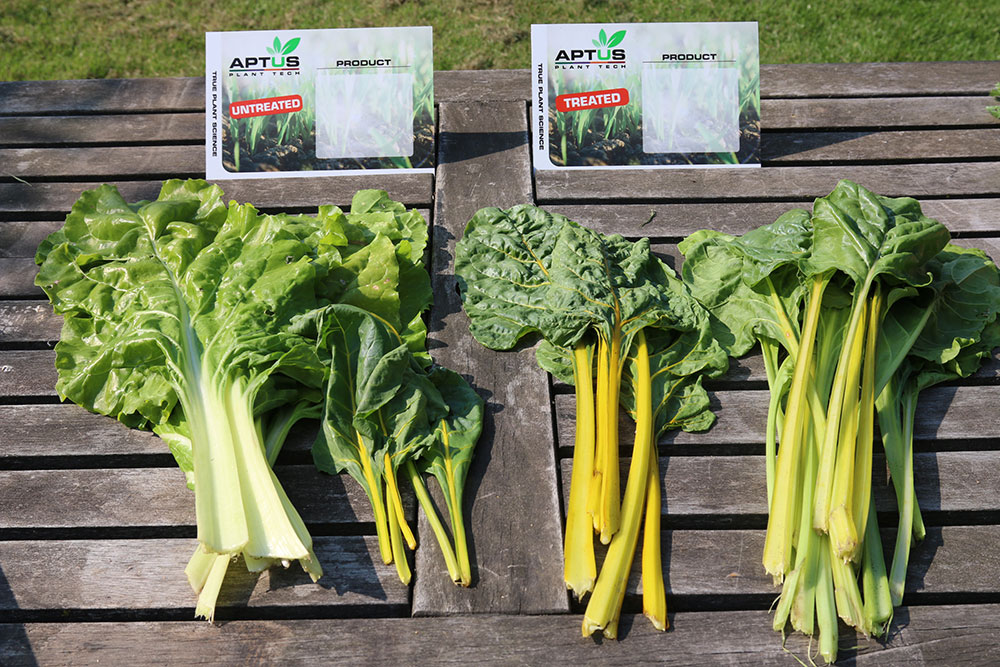
What immediately strikes is the bigger chard with the yellow stems on the treated side. Lab results show:
108% more nitrogen
20% more sulfur
33% higher brix
50% more calcium
19% less nitrate
The more nitrogen, the more growth. A precondition for growth is that nitrogen can be absorbed and converted by the plant. If this is not the case, high nitrate levels are produced, which can be converted into the hazardous nitrite. Aptus Regulator ensures that nitrate is converted into amino acids and brix. PH values go down and the plant gets bigger and stronger. So be sure to always add silicon when adding nitrogen.
Total yield of the treated section is 246 grams. The untreated section had a total yield of 176 grams. That’s an increase in yield of 140%. On average the stems on the treated side look the the same, as the untreated stems vary in thickness. On average the treated chard is 12% longer.
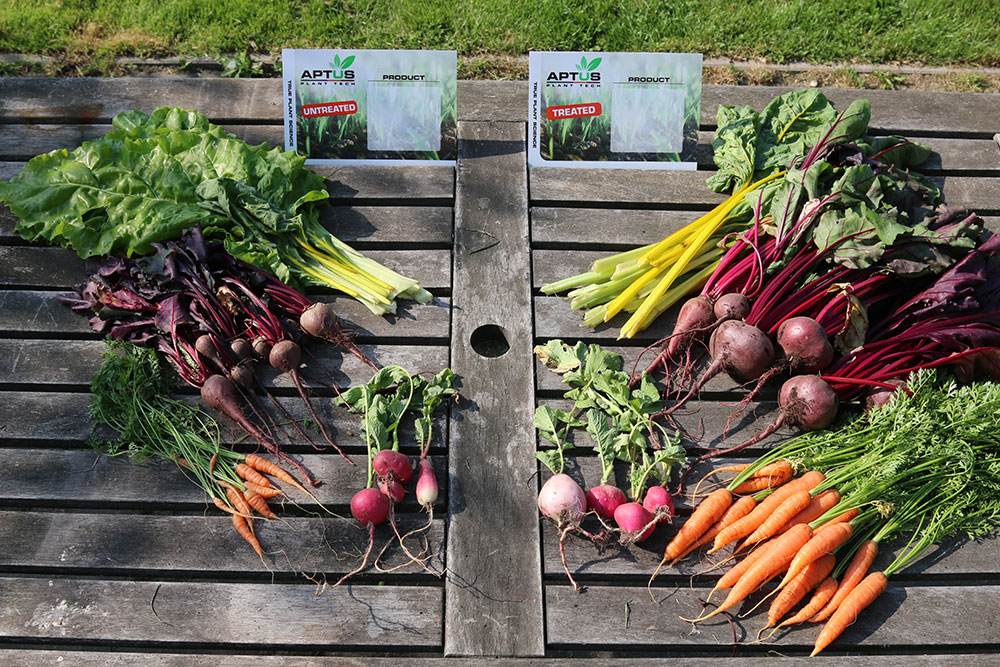
We’ll be updating you soon with results of radish and swiss chard. Like us on Facebook and keep updated on our green way forward.
Thanks for your support! Team Aptus



